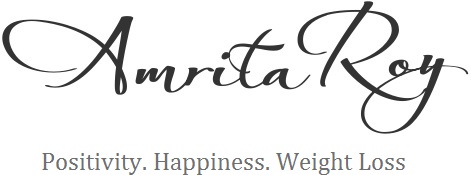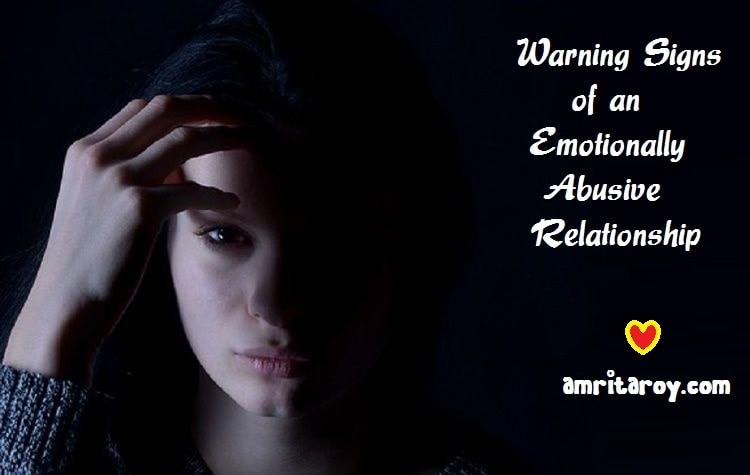Abuse in any form is not acceptable in any relationship. An emotionally abusive relationship makes you feel negative about yourself and may severely impact your self-esteem and confidence. The difficult part is that the signs of emotional abuse are not as obvious as the signs of physical abuse. But emotional abuse is no less detrimental to your well-being than physical or sexual abuse.
The trauma of an emotionally abusive relationship often leaves behind deep mental scars in the victim. The constant pressure of living up to the abuser’s expectations or complying with the abuser’s wishes makes the victim feel helpless and often hopeless. Fact is, emotional abuse is equally prevalent between men and women. It can creep its ugly head in any relationship.
But how to recognize the subtle signs of emotional abuse? Here are some of the warning signs of an emotionally abusive relationship:
Constant disapproval of whatever you do
No matter what you do, your partner always finds fault with your actions. He or she remains blind to your efforts and even when the result is good, it is never good enough for your partner. If your partner has the unhealthy habit of finding flaws in anything and everything you do, it shakes your confidence and makes you question your own abilities. Such a person is almost impossible to please and trying to gain his or her approval can impact your sense of self-worth.
Degrading you in public or in private
It is common for your partner to humiliate you in public or in private. No doubt, your partner may make you aware of your short comings or mistakes in private. But if the intention is to judge you or humiliate you, it is not at all an acceptable behaviour. Insults disguised as jokes are also disrespectful and wrong. Coping with such behaviour can cause you to suffer from low self-esteem or depression or both.
Relentless control of your actions
Your partner is a control freak who tries to control every aspect of your life. Often control freaks portray themselves as caring and responsible partners who are highly concerned about you. But the reality is that they are just interested in exerting domination over you. If your partner loves to impose his/her will on you at all times, it robs you of your freedom to do things your own way. Facing such a situation on a regular basis can lead to frustrations and your personal growth can suffer in the process.
Remaining indifferent towards your emotions
There is a lack of emotional security in your relationship. If your partner remains indifferent towards your sentiments or does not acknowledge your emotions, you may feel an emotional void in the relationship. You tend to believe that your feelings hold no value for your partner. This indifference on part of your partner can make you feel unimportant or unwanted and effect your self-esteem.
Demeaning your struggles
Your partner is never enthusiastic or encouraging about your dreams or struggles. If he/she fails to support you in your struggles or ridicules you for whatever you strive, it simply means he/she does not value or respect your dreams and desires. This can create doubt in your own mind regarding your dreams and can leave you feeling lonely and dejected.
Disrespecting the privacy of your relationship
Maintaining the privacy of the relationship is something that your partner never cares about. One of the unsaid relationship rules is that both the partners must ensure that whatever happens between them remains away from public knowledge. But if your partner threatens to make or actually makes such matters public without your consent, it can make you feel exposed or embarrassed and can impact your confidence.
Blaming you without justification
Whenever anything goes wrong, your partner invariably blames you for it. You are the one who is always accused, even when you may not have played any role in the matter. Such behaviour is clearly a sign of emotional abuse. As you are made to feel guilty for everything, you end up trying to justify yourself and your actions. It can demean your self-esteem in a major way.
Making you feel inferior
Your partner often criticizes and belittles you without any proper reason. You are constantly reminded that your partner is doing a favour by being in the relationship as you are not worthy of him/her. The imposition of inferiority can destroy the balance of equality in any relationship and can leave you feeling doubtful about yourself.
Mistrusting you
It is a regular practice for your partner to call you or text you or check up on you to know where you are, what you are doing and with whom you are when you two are apart. This displays the ever-suspicious behaviour of your partner. He/she often falsely accuses you of not being faithful or flirting with others, even though it may be completely untrue. This can create a rift between you two and can leave you completely stressed out.
Insisting on them being always right
You have a partner who never accepts any of his/her faults. Whatever be the situation, he/she always insists on being right and you are blamed to be wrong, even when it is obvious that you are right. If your partner does not have the ability to accept responsibility for his/her actions, it displays his/her irrational behaviour. Such toxic and irrational behaviour is a clear sign of emotional abuse.


This topic is very important.Emotional abuse in childhood is also the reason why people are often unable to have healthy adult relationships.
Recognition of the symptoms ,introspection,professional help and the will to live better is an ongoing journey for most people who have been abused.
Child victims are often not able to understand what is happening to them .
Seriously good post.
Thanks for sharing your views with me Dr. Basu.
Even adults often don’t even realize that they are in an emotionally abusive relationship. The line between ordinary arguments and abusive behavior is very thin and often people are confused whether what they are facing is actually some sort of emotional abuse or not. You are right, professional help is very important for the victims to come out of the trauma of emotional abuse.